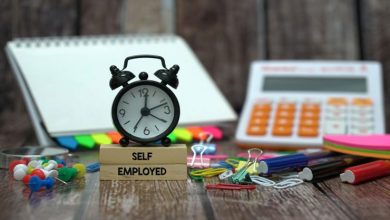Financial independence of women: How to have an independent and powerful personality?

Women’s financial independence is a subject that patriarchal societies may not like—clubs where men want women to be financially dependent on them. Let’s skip the reasons in this article because we intend to discuss something other than men’s desire for women’s financial dependence. In this article, we mean the importance of women’s economic independence and the steps to achieve it.
What does financial independence mean?
Even if you have a reliable sponsor and think it doesn’t matter, you may lose your sponsor one day. Therefore, financial independence should be considered necessary. Financial freedom means not being financially dependent on anyone. So, what happens then?
- You’re in control of your finances, so you make your own money decisions and don’t rely on others to do it for you.
- You learn the knowledge of financial management, even if it is at a basic level. With this knowledge, you can make the right decisions and manage your finances.
- You can support yourself financially: that is, you can stand on your own two feet with income from a job, savings, investments, or a combination of all three. You don’t have to rely on your father’s allowance, spouse’s expenses, government financial assistance loans, etc.
Why should women have financial independence?
How long do you want others to make financial decisions for you?
Financial independence is something that everyone should achieve, and it does not exist for men or women. But why is financial independence more critical for women? The reason is that men usually have no choice but to achieve financial independence. Still, women do not pay much attention to this category because, since ancient times, they have always considered themselves dependent on men (in fact, they have instilled this issue in them). For this reason, most women do not see financial independence as a necessary thing.
No one knows what will happen in the future, but at least we can control how we react to different situations. How? With financial independence. If you are financially independent, you can plan for the future without relying on luck. People who are economically dependent on others can only hope that the end will benefit them, especially women who face unique challenges.
Are you ready to start? Let’s talk briefly about the financial challenges that women face.
What financial challenges do women face?
Women’s financial independence is an issue that has always been neglected. The history is full of men who have always considered women their subordinates. Women’s work included staying home, cooking, cleaning, and raising children. While the men worked, they built houses or went hunting. Of course, there is no problem because women strongly desire to focus on housekeeping, raising children, and the like. Undoubtedly, these responsibilities have never been less important than working outside the home, and it can even be said that it has been more critical.
But where is the problem?
The problem is, whether you’re a homemaker or a worker, we’re still stuck in the new century with a byproduct of this traditional thinking: “Men manage the money.” Many women have relied on their fathers, husbands, and other men (even brothers and sons) to make financial decisions for generations. Fortunately, this mindset is slowly changing. Today, many women know that they should be financially independent Because it is more challenging to achieve their dreams without it.
Some of the critical financial challenges specific to women are:
- Women’s salary in a job position is often lower than that of men in the same place. Apart from this, women have to fight a phenomenon called the “glass ceiling,” an invisible but genuine obstacle between a woman and her professional success. This obstacle is the one that limits many opportunities for women’s advancement and career advancement.
- Many women spend a large part of their lives raising children and taking care of household affairs; Therefore, they have less time to work and earn money than men. Some women are even responsible for caring for older people in the family, leaving little time for their work and income.
Why is women’s financial independence necessary?
Remember this sentence well: financial independence is not a buzzword but a necessity. But why? For a simple reason: most women will eventually have to manage their finances at some point in their lives:
- The rate of poverty in women over 65 is significantly higher than in men of the same age;
- Many women, after divorce, widowhood, or even being single, will probably not have anyone to manage their money by the age of 65, so they need to learn how to do it much earlier;
- Life expectancy in women is higher than in men. Many women have always had their fathers or husbands make their financial decisions. In their absence (due to death or leaving the family), they suddenly face an unprepared responsibility.
If you are single, you may have already taken responsibility for your finances; Otherwise, you will probably have to soon. Even if you are married, you still need to prepare to know what to do if you suddenly have to shoulder the burden of managing your money. Do you have to reach a point where you have no choice? Why don’t you plan for it sooner?
With foresight and prior preparation, financial independence will become a means to reach your dreams. Suppose you need to catch up and achieve financial freedom late. In that case, you’ll only use it to deal with unexpected challenges like paying off debt, paying medical bills, making ends meet, and the like.
You see that women’s financial independence is a necessity. With financial independence, you can provide for your family’s future, have more peace of mind, reduce expenses, and build your life how you want.
What are the steps to achieve financial independence?
To achieve financial independence, you must go through 6 essential steps:
1. Specify your wishes
As we said, the first fundamental aspect of financial independence is being able to make decisions about your money. What decisions? To answer this question, first ask yourself:
- What do I want to protect in my life?
- What do I need to have peace of mind?
- What are the most important things for me to achieve in life?
- What am I most worried about losing in life?
- What is the least I can afford to lose?
The answers to these questions will determine what decisions you should make. It’s just like traveling. Where do you choose the destination wherever you want to go first? Th. Destination determines which roads you need to take, what supplies you need, and how long it will take to get there. The first step to financial independence is to choose your life destination.
Tips for choosing a destination
Choosing a destination is difficult, But you can turn it into something enjoyable. Proceed as follows:
- Write a list of your goals and always have it with you. Keeping them in mind is just a dream; be sure to write them down so that it looks like a plan. Read it occasionally and decide if what you want to do is what you want and if you have yet to change your mind. Do you want some of them now, and if not, will you let them go later? Specify these items.
- Once you’ve written the list, stick to your goals. Most of us tend to change our goals too quickly. Maybe because we often choose plans that seem normal instead of critical. Do not be scared. Write down goals that are meaningful to you, even if they are strange or very trivial. These are the desires of your heart, and we asked you to write what you want, not what you need.
2. Take control of your cash flow.
Do not spend freely and without limits.
At this point, your needs are precise. Some of your requests may include:
- To retire and not work anymore;
- In the future, my children will be financially secure;
- have enough money for unexpected expenses;
- And….
These are all great goals, and you’ll need money for all of them. We said the second essential aspect of financial independence is supporting yourself financially. To do this and achieve the goals you have set for yourself, you need to control your cash flow first. What is cash flow?
Cash flow is the total money you earn and spend on your income and expenses. Let me make it easy for you: if the money you spend is more than the money you make, you will not reach your goals, and you will not be financially independent. A lot of debt awaits you in the future (and you are probably already burdened by it).
Calculation of thumb for cash flow
To calculate cash flow, you must consider a series of factors, 2 of which are more important than others: income and expenses. Income is always closely related to payments. You will achieve financial independence only when your income exceeds your expenses. These expenses include more than just the ability to pay bills, taxes, and food. Do you remember the goals that you wrote down? They all charge a fee. Therefore, calculate the expected income and expenses to control cash flow.
Next, could you give me your attention? We want to calculate. Even if you have to, grab a pen and paper (it’s worth the time).
First, calculate how much your income and expenses are right now. For this, both revenue and costs are divided into two parts:
Current income
- How much is your monthly income, excluding taxes? Calculate both gains from the job and income from other channels.
Current costs
- How much do you pay for utilities monthly?
- How much are the daily expenses, such as gasoline, medical, etc.?
- How much do you pay for insurance (including auto insurance, home insurance, life insurance, and Social Security insurance (if optional))?
- How much debt do you have, and what monthly installments do you pay? (This can include different types of loans, separate installments, credit cards – if you use them – and so on.)
Add all these up and subtract from your income. This is the number left for your goals. Of course, remember that this is your current cash flow. For expected cash flow in the future, you need to calculate how your expenses will change, for example, after retirement:
Expected income
- How much will you earn after retirement? For example, social security rights, life insurance, and any other rights you may have as income.
Expected costs
- Do you currently pay taxes? After retirement, when your income decreases, will your taxes decrease or not?
- What expenses do you have now that you won’t have later? (For example, you have transportation costs to get to work today, but after you retire, you probably won’t, and your transportation costs will decrease.)
- What are the expenses you don’t have today but may have to pay later? (For example, Social Security is something your employer may pay for now, but you’ll have to pay if you lose your job.)
- The most complex and most important thing to consider: What will your medical and health care costs be after you retire? (Of course, no one knows this, but you should know now that you will have coverage for this after retirement or have to pay out of pocket.)
Now, add or subtract each of these four items that will increase or decrease after retirement from the current expenses you wrote down earlier.
Finally, you have to combine four numbers two by 2:
- total current income + total expected income after retirement;
- Total current expenses + Total expected costs after retirement.
Final action and important reminder
Now compare these two numbers. Which number is more significant? Remember, this is just an estimate, and we don’t want to calculate an exact number because it’s impossible. No one can predict the events that will happen in the future. Even inflation, one of the most critical factors affecting your income and expenses, typically has an upward trend. However, it is possible to reduce it.
The calculations in this section are just to get you thinking. Consider controlling your cash flow if your expenses exceed your current income.
3. Eliminate debt
Remember we said you should support yourself financially? Debts will never allow this. Have you ever encountered people who can’t afford to finance themselves despite having a well-paying job? I don’t mean they’re broke, just with the tiniest unexpected loan-like expense. The reason is that they have involved themselves too much in debt.
Did you know that women tend to have more debt than men? The reason is their unequal wages. They know they need to collect money to get what they want. For this reason, they mostly look for loans and installments. Women’s financial ability to pay debts is much less. For this reason, getting rid of debt is a crucial step to achieving financial independence.
Since the topic of debt reduction is quite broad, we briefly explain three valuable methods:
Method 1: Turn bad habits into good habits
Debt consolidation, debt settlement, and even bankruptcy are all words related to debt. Get these words out of your mind. The surest way to get out of debt and stick with it is to break the habits that keep you in debt.
We live in a society that places much value on material things. The latest phone, an expensive sports car, a big house, the latest and most luxurious home appliances, and… There is nothing wrong with wanting these things! But if you prioritize wants over real needs, you need help. You can write these as goals or desires, But you should fulfill them only when you can afford them. If you want them now when you can’t afford them, you must resort to borrowing, credit cards, installments, and similar methods. Doing so will only add to your debt.
You have to change your spending habits. Even if you get rid of all your debt, you’ll still end up with new debt because of how you spend. Changing habits is not the fastest and easiest but the most lasting way.
Method 2: Budget with cash flow control
Remember we talked about cash flow control? Another advantage of having such authority is the ability to budget. By understanding the amount of income and expenses, you can budget; That is, make a plan for your money. When you budget for everything separately, you’re less likely to be shocked by the unexpected. Do you know budgeting?
Budgeting means dividing your income into different parts and allocating a percentage of your income to those funds every month, just like you have several funds; For example, one for medical expenses, one for savings, one for unforeseen costs, and so on.
With budgeting, every time an item comes up, you spend from the budget you have allocated to that item. The benefit is that you know exactly how much you should save and how much you should pay.
Method 3: The order of paying debts is effective in getting rid of them
Some experts say to pay off your most considerable debts first. On the one hand, it makes you feel good, but on the other hand, more considerable debts are more significant problems.
There is no problem with this advice. However, we have a more attractive solution, which is the opposite. That is, settle small debts first. When you’re focusing on huge debts, it can be overwhelming. You feel like there is no end to what you pay. At the same time, small debts keep piling up and will turn into considerable sums after some time.
Clearing off any small debt energizes you and inculcates the habit of settlement. This energy takes the pressure off you, and you can reach your enormous debts.
4. Earning, saving and investing
Your capital must grow to keep up with inflation.
After controlling liquidity and eliminating debt, it is time to accumulate wealth. It’s different from this, which can be achieved by collecting a portion of your income. You have to combine income, savings, and investment.
Income comes from having a job. As a woman, you face unique challenges in this matter. Women’s work is often part-time due to family responsibilities; they are paid less than their male counterparts and are usually more likely to have to leave work to care for their families. For these reasons, women should be more committed to saving and investing than men, especially regarding retirement.
In today’s world, if a person wants to continue their lifestyle after retirement (i.e., without thinking about their dreams), they need at least 70% of their pre-retirement income in their post-retirement life. What does it mean? Your income should grow so much from non-job channels that 70% will still flow when you retire. With this account, you must be serious about saving and investing.
How should we do this?
Diversification
“Don’t put all your eggs in one basket.” This is one of the sentences that you may have heard many times. Diversification means investing in different options and putting only some of your money in one channel. For example, you can keep some of your money in cash and invest some in stocks, some in real estate, some in gold, and the other in digital currencies, as is the trend these days (this is a recommendation). It’s not an investment; it just explains how to diversify).
The important thing is to never, ever, ever invest your money in something high-risk. When you are young, you have a high risk-taking power, which puts you at risk. Cash is hard to come by in our country. If you lose your entire capital, it won’t be easy to collect it again.
Always invest that percentage of your money so that if you lose it, you won’t have any problem.
liquidity
In simple terms, asset liquidity means using it whenever you want. For example, cash has the highest liquidity because it can be used easily and anytime. Gold is also highly liquid. On the other hand, real estate is the least liquid. If you have ever sold a house or land, you probably know how difficult it can be.
risk management
Another important thing in investing is its risk. Even the least risky investments, such as gold, which rarely lose value, may be at risk of theft or loss. This is why diversification of the capital portfolio becomes essential.
5. Plan your assets
When you plan your assets, you can fully experience financial independence.
This stage is called a set of preparatory works for managing a person’s assets in case of his death or inability to make decisions. This collection includes jobs related to inheritance and property tax settlement. Its more straightforward definition is:
Estate planning is a set of things you need to do in advance to secure your family’s financial future.
This planning is the best way to ensure your loved ones get a fair share of what you have worked hard to earn. This is especially important for women. Women are created so that they feel satisfied once the future of their loved ones is secured.
will
One of the most critical documents you need to prepare is a will. In a choice, it is announced how your assets will be divided among your loved ones. If you don’t do it yourself, the government will be responsible for distributing them legally. If you do not have an heir and have not allocated your property to a charity organization or elsewhere, the government will confiscate it.
Power of attorney
Since the will does not specify who will manage you and your finances in case of disability or how you should allocate your assets to your treatment if you become ill, it is necessary to draw up a power of attorney. In this document, you must designate someone to make decisions about your assets on your behalf legally. This person can be a trusted friend, a family member, or an experienced and reliable lawyer.
Determining this person is very important. The person you choose should be very reliable.
6. Get help from a counselor.
This step is not necessary. You can do this on your own. However, since we are dealing with a complicated task, if it is difficult for you, seek the help of a financial advisor. Like a lawyer, this person must be trustworthy and skilled.
With the help of this person, you can:
- Control your finances;
- Support yourself financially;
- Stay informed about investments and how to manage your finances.
Congratulations! Now, you are a woman who does not depend on anyone financially.
last word
In short, the formula to achieve financial independence is:
- Creating a budget;
- Saving a certain percentage of your income every month;
- Creating an emergency savings account;
- Investing in a way that suits your goals and risk tolerance.
Planning for financial independence takes practice. Get started now and prepare for financial freedom.
Are you ladies who read this article financially independent? You may be in the middle of the road and will reach your goal shortly! What is the effect of women’s work and other duties defined by customs and traditional beliefs in achieving this goal? What functional solution do you know?










